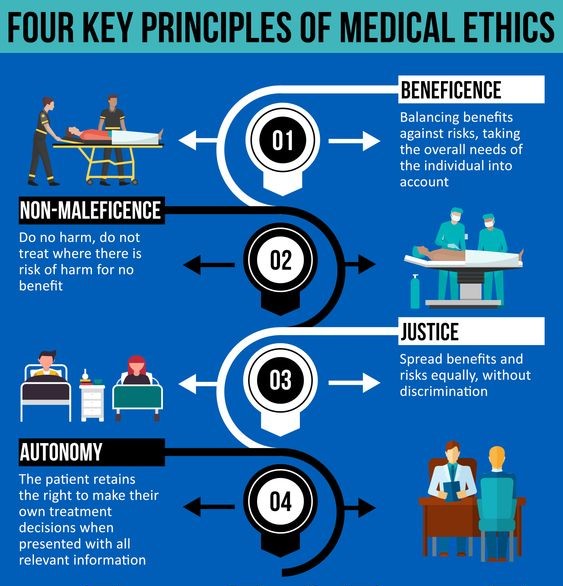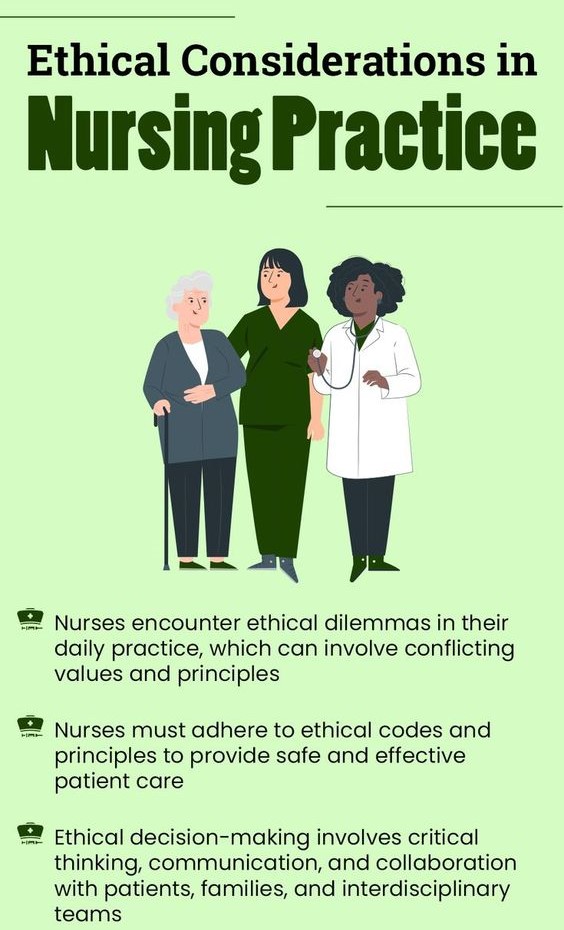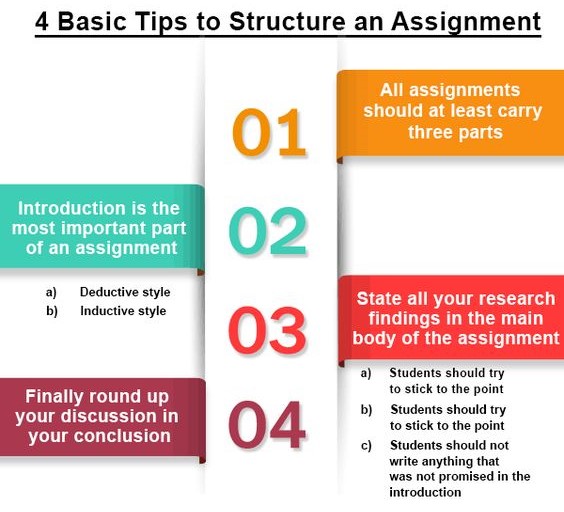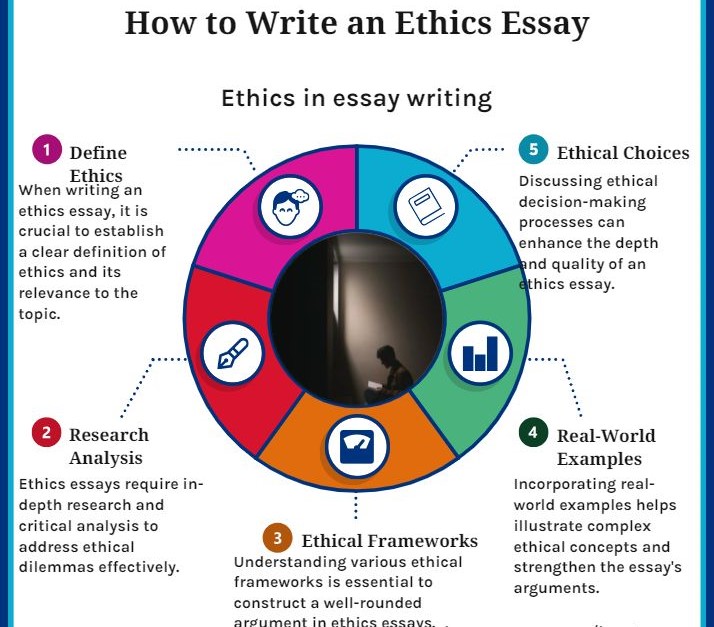
Table of Contents
Nursing, at its core, is a profession built on a foundation of ethical principles. From patient advocacy to upholding confidentiality, nurses grapple with complex ethical dilemmas daily. The ability to analyze and articulate ethical reasoning is thus crucial for both professional development and patient care. This is where nursing ethics essay writing comes into play, offering a platform to explore, synthesize, and communicate ethical considerations within the context of nursing practice.
This article will delve into effective strategies for tackling nursing ethics essay writing, providing a road-map to navigate the intricate world of ethical decision-making in nursing. From choosing a compelling topic to crafting a persuasive argument, we’ll explore essential steps to ensure your essay shines.
What are the Key Elements of a Nursing Ethics?
Nursing ethics, a vital aspect of the profession, guides nurses in making sound moral decisions in their daily practice. The nursing code of ethics is a complex field, encompassing various elements, but some key principles stand out.

1. Beneficence: This principle emphasizes doing good for patients. Nurses are expected to act in the best interests of their patients, promoting their well-being and providing safe and effective care. Exploring the challenges of balancing beneficence with other ethical principles, such as autonomy, can be a compelling topic for nursing essay writing.
2. Non-maleficence: Equally important is the principle of “do no harm”. Nurses have a duty to avoid causing harm to their patients, whether through negligence or intentional actions. Nursing ethics essay writing often involves analyzing situations where the potential for harm exists, and how nurses can navigate these ethical dilemmas.
3. Autonomy: This principle respects patients’ right to make their own decisions about their healthcare. Nurses are obligated to provide patients with all the necessary information so they can make informed choices, even if those choices differ from the nurse’s personal opinion. Nursing ethics essay writing can explore the complexities of balancing patient autonomy with the nurse’s professional judgment.
4. Justice: This principle calls for fairness in the distribution of healthcare resources and services. Nurses are expected to advocate for equitable access to care and ensure that all patients receive appropriate care regardless of their social, economic, or other personal factors. Nursing ethics essay writing can delve into the ethical implications of resource scarcity and how nurses can uphold the principle of justice.
5. Fidelity: This principle emphasizes the importance of keeping promises and being faithful to commitments made to patients. Nurses are expected to be trustworthy and reliable, upholding their professional obligations and maintaining patient confidentiality.
6. Veracity: This principle requires nurses to be truthful and honest in their interactions with patients and colleagues. This includes being transparent about potential risks and benefits of treatments, as well as disclosing any errors or mistakes.
7. Confidentiality: Nurses have a duty to protect patient privacy and confidentiality. They are obligated to keep patient information confidential and only share it with authorized personnel.
8. Accountability: Nurses are accountable for their actions and decisions. They are expected to take responsibility for their actions and to justify their decisions based on ethical principles and professional standards.
These key elements provide a framework for ethical decision-making in nursing practice. By understanding and applying these principles, nurses can navigate complex situations and provide the highest quality of care to their patients. Nursing ethics essay writing can offer an opportunity to critically analyze these principles in specific scenarios, fostering a deeper understanding of their application in real-world nursing practice.

How to Craft a Stellar Nursing Ethics Essay
1. Choosing the Right Topic:
The first step in nursing ethics essay writing is selecting a topic that resonates with you. The chosen topic should allow for a deep exploration of ethical issues, offering room for critical analysis and insightful discussion. Here are some tips for selecting a compelling topic:
- Personal Experience: Draw inspiration from your own experiences as a student nurse or practicing nurse. What ethical challenges have you encountered? How did you navigate those situations? Your personal insights will provide a unique perspective.
- Current Ethical Debates: Explore contemporary ethical debates within the nursing profession. For example, you could discuss the ethics of assisted suicide, the use of restraints, or the role of technology in patient care.
- Specific Patient Scenarios: Create a hypothetical scenario that raises ethical concerns. This could involve a patient with a specific medical condition, a conflict between patient autonomy and healthcare provider’s recommendations, or ethical dilemmas related to resource allocation.
2. Understanding Ethical Frameworks:
Once you have a topic, it’s essential to understand the ethical frameworks that inform nursing practice. These frameworks provide a theoretical foundation for ethical decision-making and will shape your arguments in nursing ethics essay writing. Some common frameworks include:
- Beneficence: Acting in the best interest of the patient, promoting their well-being.
- Non-maleficence: Avoiding harm to the patient.
- Autonomy: Respecting the patient’s right to make their own decisions about their care.
- Justice: Ensuring fairness and equity in the distribution of resources and care.
- Veracity: Being honest and truthful with patients and colleagues.
- Confidentiality: Protecting the privacy of patient information.
These frameworks, often referred to as “bioethical principles,” are not always easily applied in real-world situations. Your nursing ethics essay writing should demonstrate your ability to critically analyze these frameworks and apply them to specific ethical dilemmas.
3. Conducting Thorough Research:
Strong nursing ethics essay writing requires comprehensive research. Go beyond your textbook and explore a variety of sources, including:
- Professional Journals: Journals like the American Journal of Nursing and Nursing Ethics offer in-depth articles on contemporary ethical issues in nursing.
- Professional Organizations: Websites of organizations like the American Nurses Association (ANA) and the International Council of Nurses (ICN) provide ethical guidelines and position statements.
- Legal Resources: Consult legal resources such as the Patient Self-Determination Act (PSDA) and the Health Insurance Portability and Accountability Act (HIPAA) to understand legal considerations surrounding ethical dilemmas.
- Ethical Theories: Explore ethical theories like utilitarianism, deontology, and virtue ethics. These theories offer different perspectives on how to approach ethical decision-making.
4. Building a Compelling Argument:
Your nursing ethics essay writing should present a clear and well-supported argument. Here are some key components of a persuasive ethical argument:
- Strong Thesis Statement: Your thesis statement should clearly articulate your position on the ethical issue at hand. It should be specific, debatable, and provide a roadmap for the rest of your essay.
- Supporting Evidence: Back up your argument with relevant evidence from your research. This can include factual data, case studies, expert opinions, and relevant ethical principles.
- Counterarguments: Acknowledge opposing viewpoints and address them fairly. This demonstrates your ability to consider multiple perspectives and strengthens your argument by showing you’ve considered the full spectrum of ethical considerations.
- Logical Reasoning: Use logical reasoning to connect your evidence to your thesis statement. Explain how your evidence supports your position and why you believe it holds more weight than counterarguments.
5. Structuring Your Essay:
A well-structured essay will enhance the clarity and impact of your argument in nursing ethics essay writing. Consider the following structure:

- Introduction: Engage the reader with a compelling opening that introduces the topic and your thesis statement.
- Body Paragraphs: Each body paragraph should focus on a single key point supporting your thesis. Begin each paragraph with a topic sentence that states the main idea, followed by supporting evidence and analysis.
- Counterarguments: Dedicate one or two paragraphs to addressing opposing viewpoints. Acknowledge the validity of these viewpoints but explain why your argument is more persuasive.
- Conclusion: Reiterate your thesis statement and summarize your main points. Conclude with a thought-provoking statement that leaves a lasting impression on the reader.
6. Writing Style and Tone:
In nursing ethics essay writing, your writing style should be professional, objective, and respectful. Avoid overly emotional language or biased opinions. Focus on presenting a clear and logical argument that is grounded in ethical principles and supported by evidence.
7. Ethical Considerations in Essay Writing:

Beyond the topic of your essay, ethical considerations also extend to the process of nursing ethics essay writing. Ensure you are:
- Respecting Confidentiality: If you use real patient cases, be careful not to disclose any identifying information that could compromise their privacy.
- Avoiding Plagiarism: Properly cite all sources you use. Plagiarism is a serious academic offense and undermines the credibility of your work.
- Acknowledging All Contributors: If you have collaborated with others on your essay, acknowledge their contributions appropriately.
8. Seeking Feedback and Revision:
Before submitting your essay, seek feedback from peers, professors, or mentors. They can provide valuable insights into the clarity, logic, and persuasiveness of your argument. Use their feedback to revise your essay and ensure it meets the highest standards of academic rigor.
9. Exploring Different Perspectives:
Nursing ethics essay writing is an opportunity to challenge your own assumptions and consider different perspectives. Engage with ethical theories, analyze case studies, and explore diverse viewpoints to broaden your understanding of ethical complexities. This will allow you to develop nuanced arguments and articulate a more comprehensive understanding of the ethical issues at hand.
10. Reflecting on Your Own Values:
Nursing ethics essay writing can be a personal journey of self-discovery. As you grapple with ethical dilemmas, you’ll also be reflecting on your own values and moral compass. This process can be a catalyst for personal and professional growth, shaping your understanding of ethical principles and guiding your future decisions as a nurse.
Examples of Nursing Ethics Essay Topics
Here are 5 topics on nursing ethics to inspire your next essay:
1. The Role of Patient Autonomy in End-of-Life Care: A Nursing Ethics Essay Writing Perspective: Explore the ethical challenges nurses face when balancing patient autonomy with medical interventions and family wishes in end-of-life situations. Consider the role of informed consent, advance directives, and cultural sensitivity in nursing ethics essay writing.
2. The Impact of Social Determinants of Health on Nursing Ethics Essay Writing: Analyze how factors like poverty, access to healthcare, and social stigma influence ethical decision-making in nursing practice. Discuss the nurse’s responsibility to advocate for vulnerable populations and challenge systemic inequalities in nursing ethics essay writing.
3. The Ethical Dilemmas of Technology in Nursing Practice: A Nursing Ethics Essay Writing Exploration: Examine the ethical implications of emerging technologies like telehealth, artificial intelligence, and wearable devices in nursing care. Address issues of privacy, data security, and the potential for bias in nursing ethics essay writing.

4. The Importance of Professional Boundaries in Nursing Ethics Essay Writing: Discuss the ethical challenges related to maintaining professional boundaries with patients, colleagues, and other healthcare professionals. Analyze the impact of blurring boundaries on patient trust, nurse wellbeing, and the integrity of the nursing profession in nursing ethics essay writing.
5. The Evolution of Nursing Ethics Essay Writing: A Historical Perspective: Trace the development of ethical codes and principles in nursing from historical contexts to contemporary issues. Analyze how societal changes, technological advancements, and changing patient needs have shaped the ethical landscape of nursing practice in nursing ethics essay writing.
Nursing ethics essay writing is a challenging but rewarding exercise that equips you with the skills to navigate complex ethical dilemmas in your professional life. By following these strategies, you can develop a strong argument, present a compelling case, and make a meaningful contribution to the ongoing dialogue about ethical considerations in nursing. Remember that ethical practice is an ongoing journey, and nursing ethics essay writing can serve as a valuable tool in this journey of ethical development. As you delve deeper into the world of nursing ethics, you will gain a deeper understanding of your responsibilities as a healthcare professional and contribute to creating a more just and compassionate healthcare system for all.
Professional Nursing Ethics Essay Writing Help
At Nursing Papers, we understand that crafting compelling nursing essays can be overwhelming to students. We can offer you customized nursing ethics essay writing help, with a guarantee of an original and impactful paper. Our service covers topic suggestion, essay writing, proof reading and editing, plagiarism check and removal.







